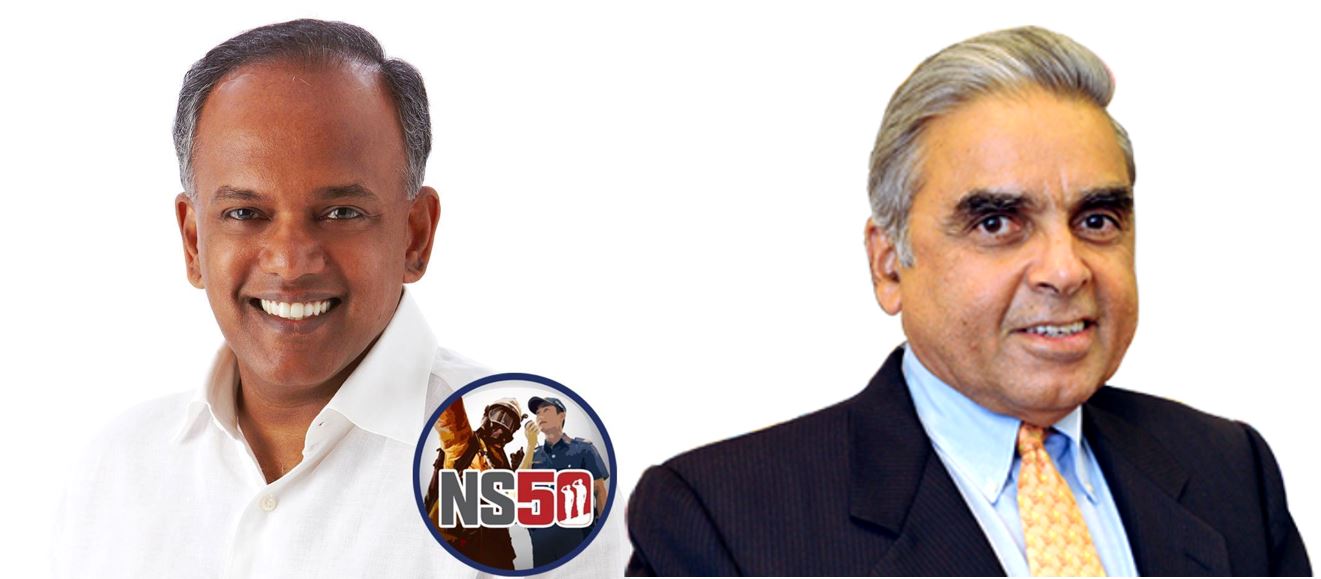When dean of the Lee Kuan Yew School of Public Policy Kishore Mahbubani wrote his recently published Straits Times commentary, he probably did not anticipate the storm of criticism that would follow.
Since its publication on July 1, he has attracted a swift rebuke from his former subordinate - former Ministry of Foreign Affairs permanent secretary and currently ambassador-at-large Bilahari Kausikan, and now counts Minister for Home Affairs and Minister for Law K Shanmugam, who was a former Minister for Foreign Affairs, as another prominent critic who disagree with him.
So what exactly did Kishore write that prompted Shanmugam to criticise his commentary as intellectually questionable in a lengthy facebook post on July 2?
The context
Kishore had written about three issues for small countries like Singapore to learn from the ongoing Qatar crisis in the middle east:
1) Small states must always behave like small states
2) Cherish your regional organization
3) Cherish the United Nations
While his second and third lessons are uncontroversial, it was his advocacy of lesson one, which is essentially arguing for a fundamental change in foreign policy approach, that made him the lightning rod of criticisms.
To people who are familiar with Singapore's longstanding foreign policy, it sounded like an extremely curious piece of advice, especially coming from someone who was once the top ranking civil servant in MFA.
Here is an extract of what he wrote:
"We are now in the post-Lee Kuan Yew era. Sadly, we will probably never again have another globally respected statesman like Mr Lee. As a result, we should change our behaviour significantly.
What's the first thing we should do? Exercise discretion. We should be very restrained in commenting on matters involving great powers.
Hence, it would have been wiser to be more circumspect on the judgment of an international tribunal on the arbitration which the Philippines instituted against China concerning the South China Sea dispute, especially since the Philippines, which was involved in the case, did not want to press it.
When I hear some of our official representatives say that we should take a "consistent and principled" stand on geopolitical issues, I am tempted to remind them that consistency and principle are important, but cannot be the only traits that define our diplomacy. And there is a season for everything. The best time to speak up for our principles is not necessarily in the heat of a row between bigger powers"
It is therefore entirely unsurprising that Shanmugam waded in to praise Bilhari's "brilliant response" and adding his views to the mix.
He said Kishore's comments are contrary to some basic principles of founding Prime Minister Lee Kuan Yew as "Mr Lee never advocated cravenness, or thinking small."
Below is Shanmugam's full post:
Kishore Mahbubani had written a piece on foreign policy which I found questionable, intellectually.
Bilahari has given a brilliant response – the response that Kishore’s article deserves. I have included the link to his response below.
Kishore’s comments for example: “Small states must always behave like small states” are contrary to some basic principles of Mr Lee Kuan Yew which made us successful. Mr Lee never advocated cravenness, or thinking small.
Did we get to where we are now, by thinking “small”? No.
That is why Singapore was and is respected, despite being one of the smallest countries in the world. And Singaporeans are proud to be Singaporeans.
As Foreign Minister, I never forgot that we were a small country and there were limits to what we can do. But equally I also knew, that once you allow yourself to be bullied, then you will continue to be bullied. And I never allowed myself to be bullied, when I represented Singapore.
There were Ministers from other countries who threatened us, in different ways, took a harsh tone, when we didn’t give them what they wanted.
As all our Foreign Ministers have done, I just looked them in the eye and told them we stood firm. They changed their attitude after that.
Handling international relations is not all toughness. It has its funny moments. One example for me, is a conversation with a former German Foreign Minister. I liked and respected him. Once he was trying to persuade me to agree with a German point of view. And he said: “We small countries should support each other” – bracketing Singapore and Germany as “small countries!” I laughed and responded to say I wished we were small like Germany, with the fourth largest economy in the world and the largest in Europe, and with a population in excess of 80 million. Charm is also part of diplomacy, and he was being friendly and charming.
We have to be clear about our interests, and go about it smartly. But not on bended knees and by kowtowing to others.
By definition almost every country, including our neighbouring countries, are all bigger than us. We treat each other with mutual respect. Once we are shown to be “flexible”, then that is what will be expected of us every time.
Quoting Thucydides without contextualising, may appeal to those who don’t know foreign policy, and lead to erroneous conclusions.
I will suggest that those with an interest in foreign policy read Bilahari. He is an intellectual, with a deep understanding of how foreign policy works.
Related articles:
Top photo from K Shanmugam's facebook and Wikipedia
If you like what you read, follow us on Facebook, Instagram, Twitter and Telegram to get the latest updates.
